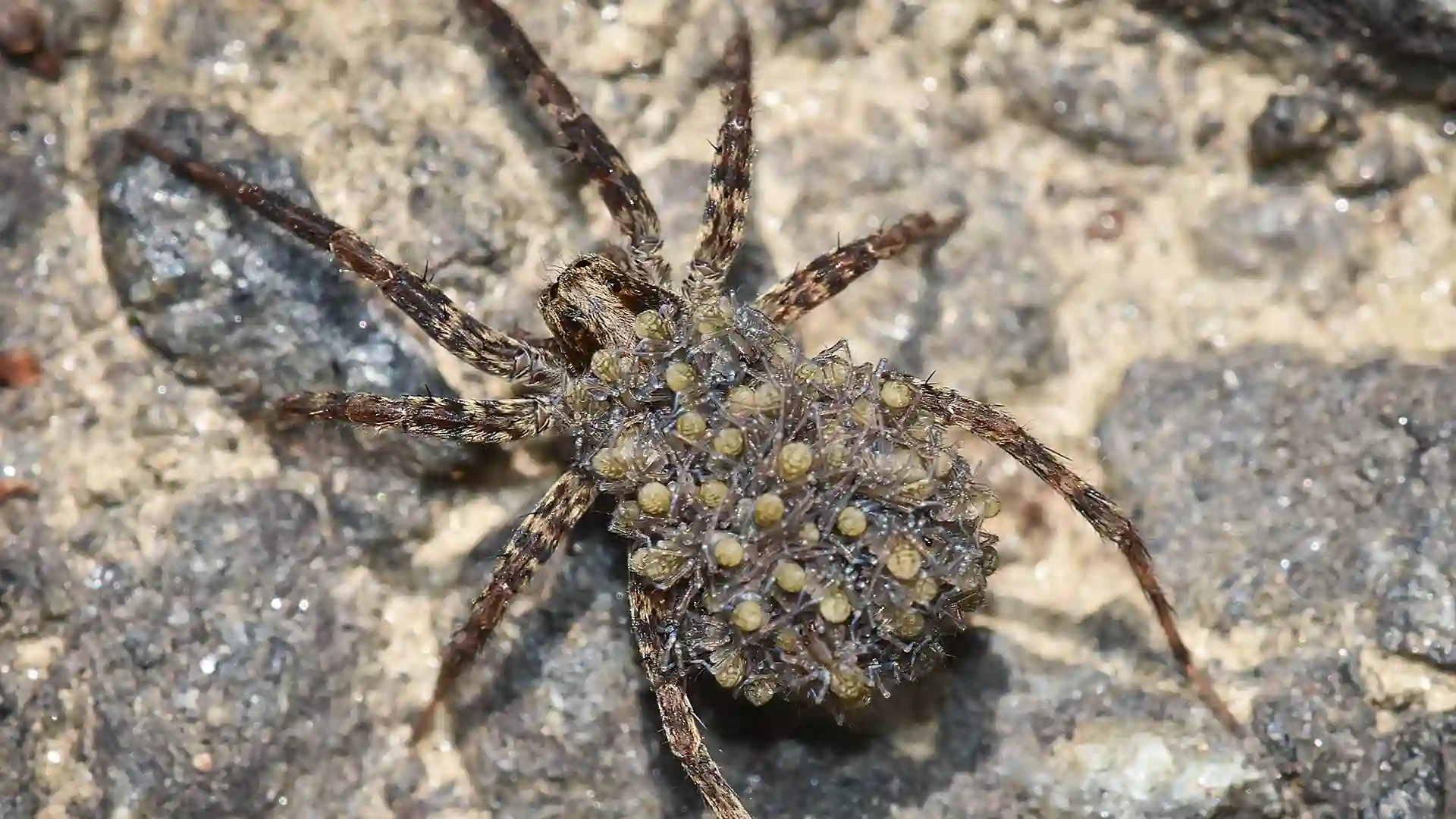
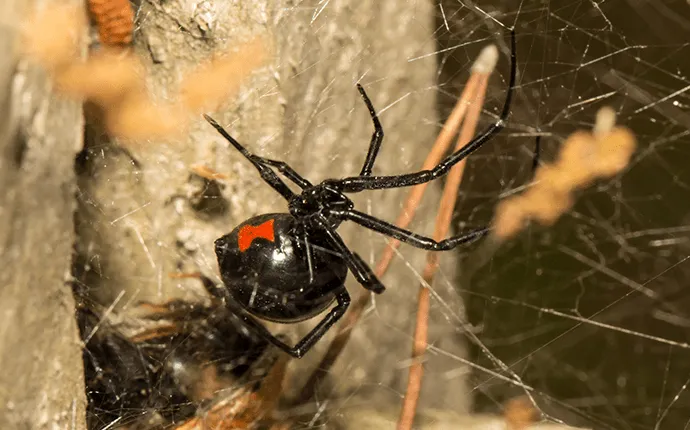
Bug Identifier: Know Your Spiders
Love ‘em or hate ‘em, chances are you know a spider when you see one. Spiders are arachnids, and that means all of them can be identified by a few shared characteristics.
Arachnids can be easily spotted by their eight legs, two body segments, and skin-piercing pinchers. Many also have eight eyes, though some may have as few as two and as many as 12 —and a few species don’t have any eyes at all!
Beyond those traits, though, there can be a lot of variety in the appearance of each, as well as in the level of danger they present to you and your family. It’s important to brush up on your spider identification skills so you can know exactly what kind of pest you’re dealing with, and what, if any, kind of risks they present.
Spider Identification in North Carolina
If you were to become an expert in spider identification, you would need to memorize the unique traits of each of the world's 45,000 known species of spiders. Luckily, only a fraction of those live in North Carolina, so you really only need to familiarize yourself with the locals in order to be prepared.
So, which spiders are commonly found in NC?
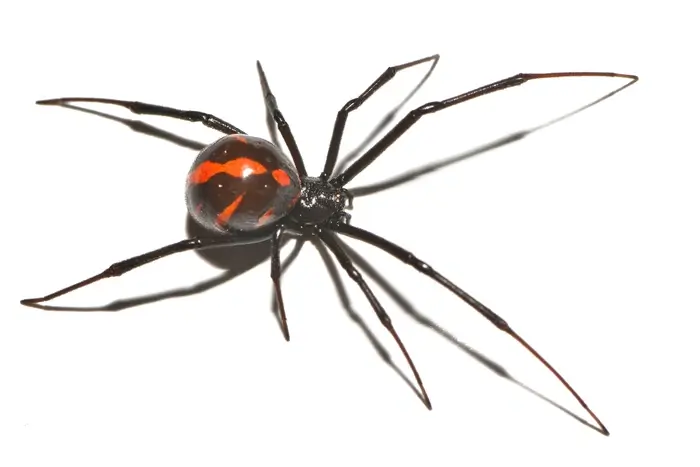
Black Widow Spiders
Black widow spiders can be recognized by their unique appearance: they have an hour-glass shaped red marking on the underside of their abdomen. The rest of their bodies are glossy black. These spiders can grow to be around 1.5 inches, and females typically are larger than males.
They are mostly found outside, but they can also be found in stacks of wood inside the home, as well as in dark spots like attics and basements.
The black widow bite is toxic to humans, leading to muscle stiffness, nausea, abdominal pain, weakness, rash, and difficulty breathing. On the bright side, these spiders only lash out if they feel threatened, so a black widow bite is relatively rare.
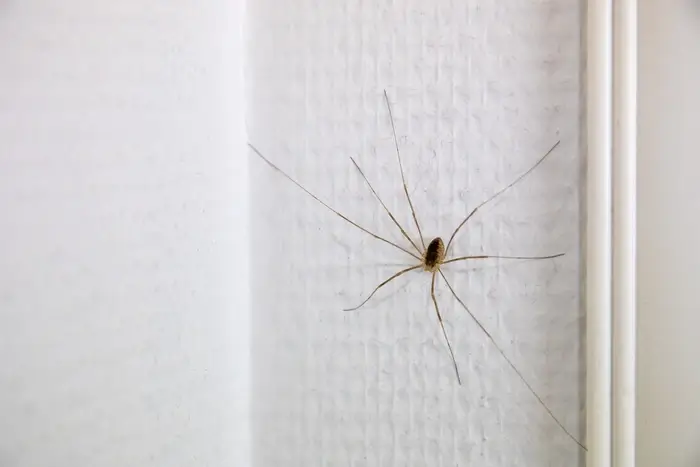
Cellar Spiders
Named for their affinity for dark and damp environments, these harmless spiders can be recognized by their small size, tan or yellow coloring, and long spindly legs. They are often mistaken for daddy long-legs, which share some qualities with the cellar spider.
These spiders don’t pose a threat to humans.
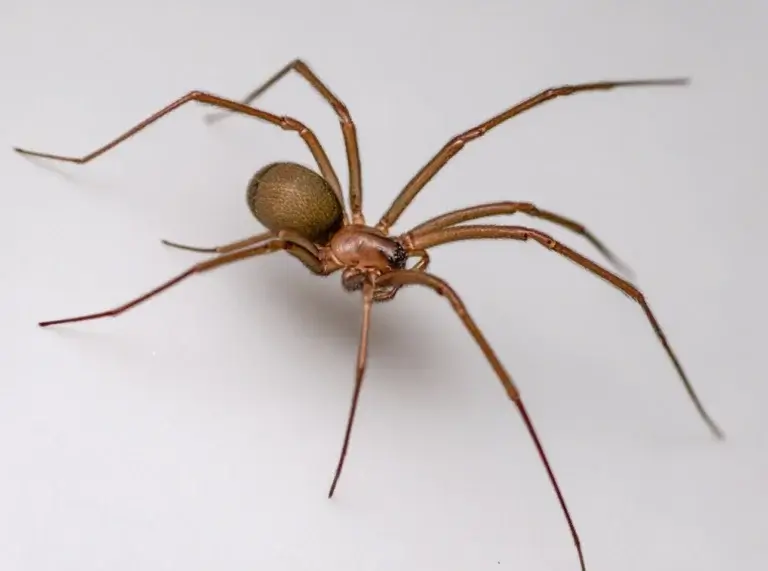
Brown Recluse Spiders
Brown recluse spiders are, as you might have guessed, brown, with a violin-shaped marking on their backs. They are usually small—around half an inch—and prefer dark, cool places like closets, basements, and attics.
Brown recluse spiders are venomous, which means their bite is toxic to humans. Symptoms of a brown recluse bite include pain at the site of the bite, a wound that grows into an ulcer-like open sore, fever, body aches, and chills.
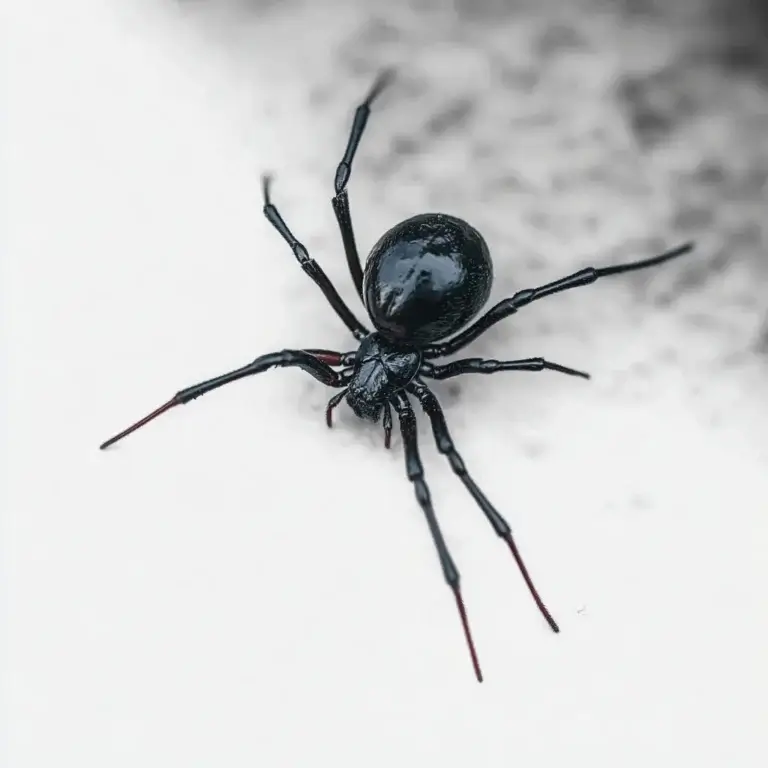
False Black Widow Spiders
As their name suggests these spiders looks very similar to real black widow spiders, but they lack the distinctive hourglass-like markings.
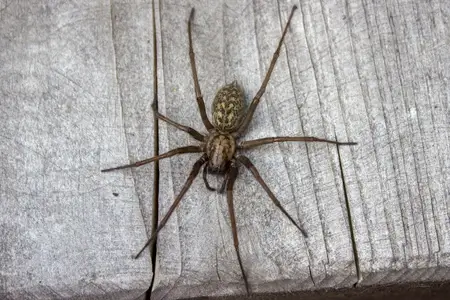
Giant House Spiders
Large in size, the adult male giant house spider can have a four-inch leg span and the female up to two inches. Their coloring varies, often dark orange, brown, or beige.
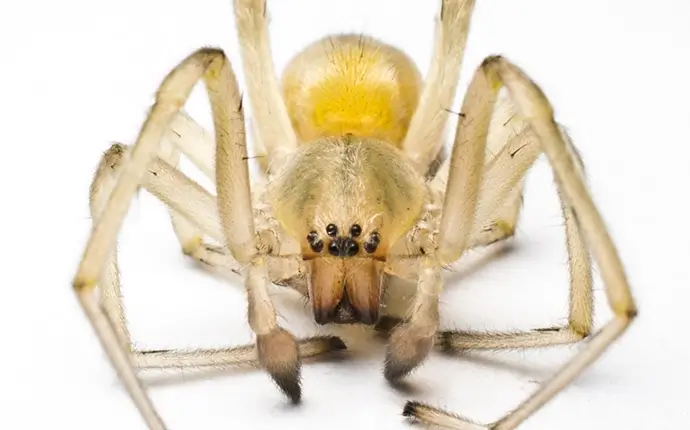
Yellow Sac Spiders
A smaller species with long thin legs, sac spiders are typically pale beige to yellow in color; they may also have a green tinge.
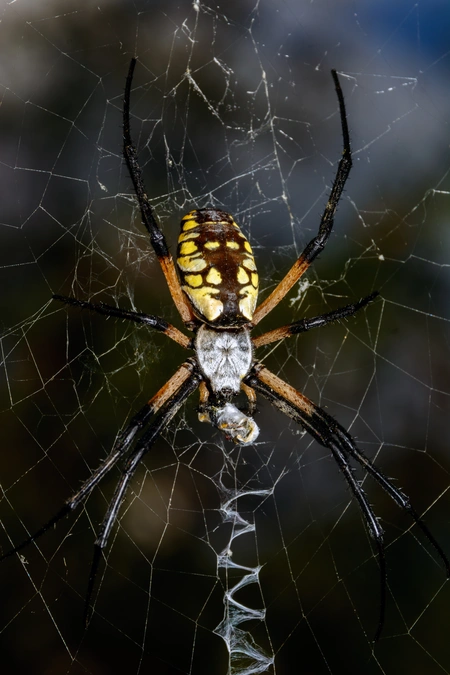
Orb Weaver Spiders
Orb weaver spiders might be identified more easily by their webs than by any physical traits. These spiders weave spiral wheel-shaped webs, typically found in outdoor spaces like gardens and forests.
Their markings and size can vary greatly, making it hard to identify an orb spider by sight, though many have bright yellow markings and a rounded abdomen that give them away.
Orb weaver spiders do not carry venom strong enough to put people at risk, so you can rest easy knowing you're safe from this species.
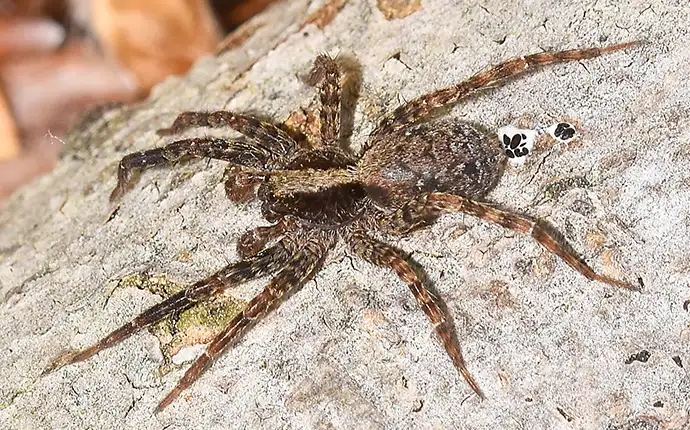
Wolf Spiders
Wolf spiders are dark brown in color, accented with some dark stripes. While they may at first appear similar to a brown recluse, they can be differentiated by their larger size (many can grow to around two inches) or more and hairy bodies.
Wolf spiders are not particularly dangerous to humans, though their bites can cause discomfort and swelling.
And their name? That comes from their penchant for hunting down their prey like a wolf, instead of opting to weave the typical webs.
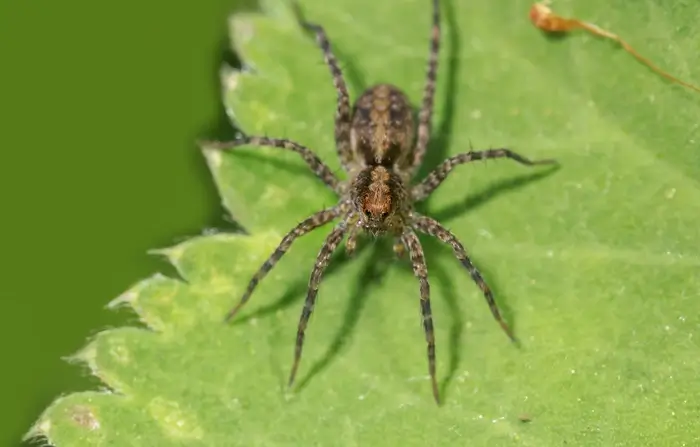
Hobo Spiders
Like the brown recluse and wolf spider, hobo spiders are brown in color. However, these spiders do not boast the violin-shaped marking of the brown recluse, or the size of the wolf spider. They also have much finer hair than the wolf spider which works to distinguish them.
Hobo spiders have a chevron-shaped marking on their backs, and are usually between 1 and 1.5 inches in size.
While hobo spiders do contain venom, it is not potent enough to cause any serious harm if they do bite a person.


Spider Facts
What Is the Most Painful Spider Bite?
There are no pleasant spider bites, but black widow and brown recluse bites are by far the most painful of all the species in North Carolina. The bite site itself may be swollen, itchy, and even ulcer-like in the case of a brown recluse.
Other symptoms of a brown recluse bite include body aches, chills, fever, muscle stiffness. The black widow bite can cause nausea, abdominal pain, muscle stiffness, weakness, and difficulty breathing.
How Many Eggs on Average Does a Spider Lay in Its Lifetime?
Depending on the type of spider and length of its life, a spider can lay thousands of eggs in its lifetime.
Spiders can produce between 10 and 20 sacks in their lifetime, with each sac containing hundreds of eggs. With a lifespan of between two and 20 years depending on the species, that can result in more than 5,000 eggs.
About How Many Venomous Spiders Are There in North Carolina? In the World?
There are just two venomous spidersn North Carolina: the brown recluse and the black widow. In the world, there are around 30 venomous spider species, whose venom can cause serious harm or death to humans.
How many eggs does a spider lay at one time?
Depending on the species, one sack of eggs can contain between 10 and 1500 eggs, with each egg containing one spider.
Do spiders crawl into people’s ears while they sleep?
We hate to break it to you, but the answer to this one is unfortunately: yes. It isn’t incredibly common, but there have been plenty of reports of bugs and spiders making their way into people’s ears while they sleep—in some cases resulting in a trip to the ER.
What to Do if You Have a Spider Infestation
There are some preventative measures you can take to reduce the odds of a spider infestation in your home. Make sure to regularly clean any webs you see, keep up with pest control measures for other insects to reduce their food supply, and keep large hedges and trees trimmed and away from the house when possible. You can also eliminate some potential hiding spots by reducing clutter.
If you have already noticed an infestation in your home, the most efficient solution is enlisting the help of a pest control company. Experts have the knowledge and experience, as well as the latest tools, to address the problem quickly and safely. Homeowners in North Carolina can take advantage of A-1 Pest Control’s residential pest control plan, designed to keep spiders and their food source out of your home.
Helpful Spider Articles
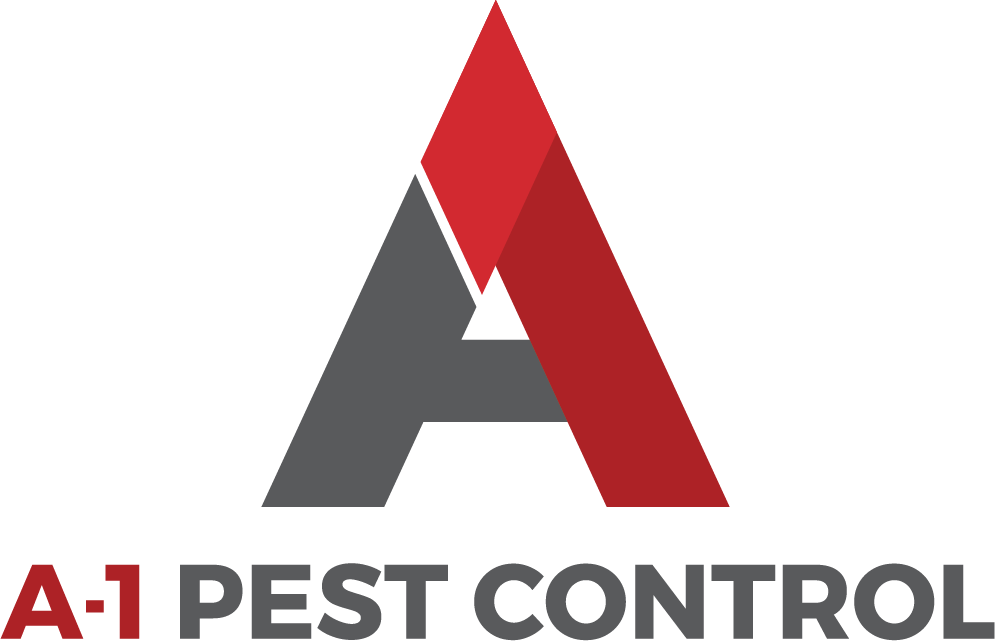
About A-1 Pest Control
Spiders are helpful creatures when they are left to their own devices in the wild, but nuisances when they get into your home or infest your yard. A-1 Pest Control specializes in the prevention and extermination of spiders in North Carolina homes, to keep homeowners and their families safe and eliminate worry.
Contact us today to learn more about our pest control plans to keep spiders out of your home for good.
Recommended Program for This Pest:

Initial Treatment
Only $
What's Included:
- Year-Round Protection
- Covers 15+ Pests
- Free Re-treatments
- Stinging Insect Control on the Structure
- Seasonal Mosquito Treatments
- 10 Treatments
- Outdoor Tick & Flea Control
- Indoor Flea Treatments
- Fire Ant Control
- Sentricon Termite Protection
Contact Us
Please fill out this form and we will get back to you shortly.
"*" indicates required fields

